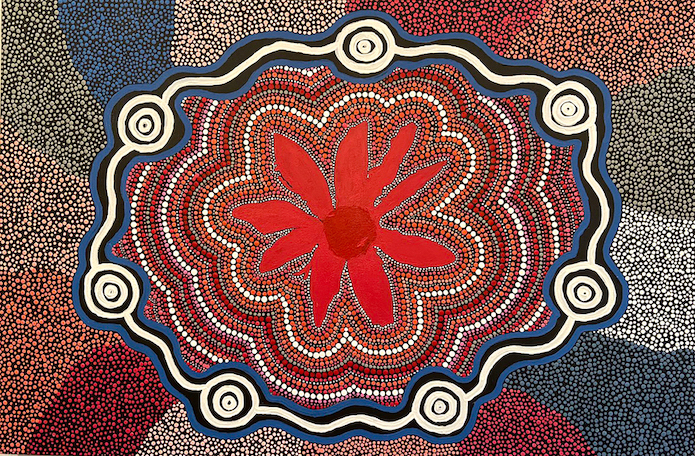Many new parents like Kate can suffer in silence, often due to stigma and a sense of shame, asking themselves “where can I find support?”.
Perinatal depression and anxiety affect almost 100,000 expectant and new parents in Australia each year. They can also experience mixed emotions as their sense of identity changes, and we know that 50% of new parents will experience adjustment disorders.
Many expectant parents are struggling with infertility, and those who have experienced a perinatal loss are in need of specialist support.
Luckily Kate found the support she needed through Gidget Foundation Australia’s Start Talking telehealth program and with your help, we can ensure that the most vulnerable parents nationally will feel less alone and be able to access the specialist support they need.
Recently we achieved the wonderful milestone of delivering 50,000 appointments to parents in need and with your regular support, we can train, mentor, and supervise new Clinicians to support Australian families when they need it most.
If you want to know more about our programs, please click here
What is the Gidget Collective? It’s a group of people who care deeply about Gidget Foundation Australia, its work and the people we support.
This year we are recognising 22 years of giving since we lost our beautiful namesake Gidget, and with the kind monthly commitment of our supporters, we want to make it extra special.
Our main goal in 2023 is to reach $50,000 raised by our incredibly generous Gidget Collective members.
We will be encouraging as many generous supporters as possible to commit to a monthly donation which will make a significant difference to the lives of the 100,000 Australian parents impacted by PNDA each year.
Please join us and become part of the Gidget Collective to support, not only vulnerable parents now, but to change the face of parenting for generations to come – for your children – the future.
Kindest regards,
Arabella Gibson
CEO, Gidget Foundation Australia

Funds Raised by Gidget Collective
Kate's Story
“It was a relief to fall pregnant again a few months after we lost our second pregnancy at 9 weeks. Thankfully our third pregnancy went relatively smoothly, until 35 weeks.
After a particularly stressful week with bushfires raging close to our farmland, a tragic accidental death on our property, and months of drought and smoke, I noticed my little girl wasn't moving as regularly as normal.
We decided to go straight to the local hospital where it was confirmed that her foetal movement had slowed, and her heart was racing.
Suddenly, I was to be rushed to Canberra Hospital (1.5hrs away) to deliver my baby, the doctors were worried her heart would give up. My husband was 20 minutes away and unlikely to catch the ambulance. I was alone, jostling about on the stretcher, sirens blaring, concentrating hard on the heart rate monitor, pleading with it to slow down.
In Canberra, the surgeon met me in the carpark, and I was rushed through the corridors Grey’s Anatomy style on a stretcher signing documents and removing jewellery as we went. The anaesthesia was administered, I was sliced open and a few seconds later there she was squalling her little lungs out, those cries filling me with relief.
They worked on her for what felt like forever and then she was presented to me, swollen, pink and tiny at 2.3kgs. She was breathing on her own but needed to go to the NICU for extra support.
"Losing complete control of our lives was incredibly disarming and our resilience was tested daily. I couldn’t have done it all without the unwavering support of my husband and family, and cuddles from my toddler." |
We spent two and a half weeks in hospital, mainly tube feeding while Frankie learnt to breastfeed, our 2-year-old two hours away on our farm with my parents, missing us dreadfully.
For the first week I was forced to sleep alone without my newborn, her shock of black hair only revealed to me when her beanie slipped off on the third visit while I was nursing her.
Losing complete control of our lives was incredibly disarming and our resilience was tested daily. I couldn’t have done it all without the unwavering support of my husband and family, and cuddles from my toddler.
I sought professional help in my attempts to make sense of the trauma I’d experienced, thankfully finding Gidget Foundation Australia. Living rurally, it can be difficult to access services with long wait times and travel, the Gidget Foundation’s Start Talking telehealth program allowed me to prioritise my mental health, providing online support from home while my baby sleeps.
Motherhood is fraught with societal pressures to be a natural, to compete for perfection or to just get on with it. Breaking down these barriers and having honest chats without judgement were the contributing remedies to the loneliness, loss of identity and anxiety that was induced when I became a rural mother.”







